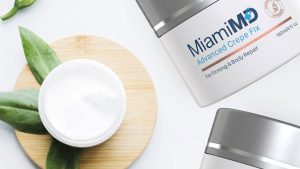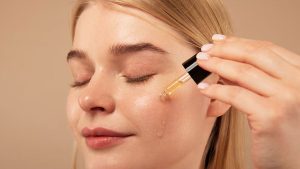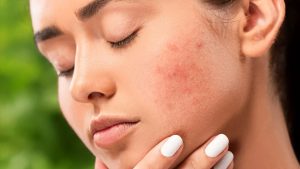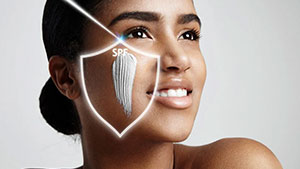How To Increase Collagen Production
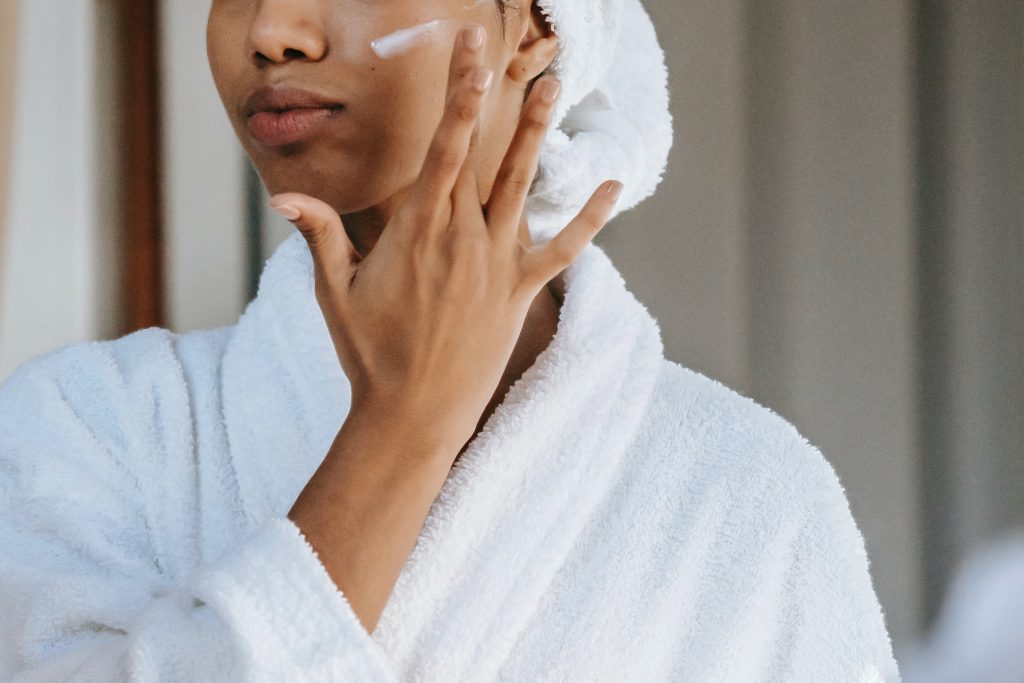
One of the leading causes of the visible signs of facial aging is a loss of collagen. For such a small protein, it really makes a huge difference.
Collagen production is a main selling point of many different skincare products, but how can you know if they really live up to the hype?
Learn all about this life changing protein, and what it really can do for you, with MiamiMD.
What is Collagen?
In the simplest terms, collagen is a protein. However, it isn’t just any protein — it is the protein that is found in the most abundant amounts in the body (making up over 25% of the body’s total). Collagen is important for many different functions, but its most important is its ability to provide structure and support.
Without collagen, the body wouldn’t have bones, muscles, skin, tendons, teeth, blood vessels, or ligaments. It really is the glue that holds the body together.
Although we talk about collagen as a whole, there are actually 16 different types. They are named according to their importance and prevalence in the body. For example, collagen type I accounts for about 90% of the collagen present, mostly because it is very densely packed.
Collagen starts out as procollagen, which is made out of glycine and proline (two amino acids). For the body to be able to create procollagen, it needs vitamin C. As each procollagen molecule is produced, it starts to glue itself to other procollagen molecules. Eventually, these groups of procollagen molecules become fibrils, or tiny strands of procollagen molecules and other vitamins and minerals, that look very similar to strands of thread under a microscope.
When enough fibrils come together and grow big enough, they bind even further and turn into full fibers that are about to attach themselves directly to each skin cell. These fibers ultimately act as anchors, and can start their permanent job of not only supporting the skin but also providing it with elasticity.
Why is Collagen Important for the Face?
The skin is made up of three layers: the hypodermis (or subcutaneous fat layer), the dermis, and the epidermis. While collagen is found in every layer of the skin in some amount, 70% of the dermis (or middle layer) is made up of the protein.
When it comes to the face, collagen performs a few different jobs. Just like it does all over the body, collagen provides the skin with strength and support. It also keeps our skin elastic and supple, which is what fights off fine lines and wrinkles as the skin is more readily able to “bounce back.”
Unfortunately, as we age, our natural collagen levels decrease at a rate of about 1% a year. As the collagen fibers start to degrade, they weaken and become less elastic in nature. The less pliant the collagen fibers are, and the more they harden, the more likely it is that you’ll start to see dryer skin with more apparent fine lines and wrinkles.
Without that supportive collagen acting as an anchor between the layers of skin, you’ll also notice sagging and a general loss of firmness and elasticity.
That’s often why cheeks and under-eye areas start to look more slim and gaunt as the years pass. It’s not necessarily that people are losing weight, but that the fat pads that were previously present have started to thin.
As the collagen starts to slowly fade away, the effect is made even more apparent by the skin’s inability to keep up with the production of new skin cells. With a longer time between skin cell turnover also comes more dull skin, as dead and dying skin cells sit on the surface of the skin for longer periods of time before being replaced.
A proper skincare routine that is designed to help remove those dead skin cells and stimulate collagen production can help fight the tides of time and keep your skin looking youthful and beautiful for years to come.
Is There A Way To Boost My Collagen Production?
The good news is that there is! While it might not be immediately obvious, the effects of collagen production can really make an enormous impact on the way that the face both looks and feels.
Nutritionally, make sure that you are giving your body the right nutrients that it needs to create procollagen (that goes on to make additional collagen).
Eating foods rich in vitamin C (bell peppers, citrus fruits, etc.), glycine (gelatin, chicken and pork skin), proline (egg whites, cabbage, wheat germ), and copper (cocoa powder, cashew) can help your body help itself from the inside out.
You can also take supplements designed to help strengthen and grow hair, skin and nails, like our very own Total Beauty Matrix.
You can also help to boost collagen production by using products topically. Peptides and products that contain vitamin C are excellent for use in this way.
One of the best collagen producing peptides out there is an ingredient known as Matrixyl 3000, because it was also one of the first based on a new technology known as matrikine peptide technology. Matrixyl 3000 is made out of two peptides – palmitoyl tripeptide-1 and palmitoyl tetrapeptide-7. When combined, they work in a synergistic (cooperative) way to help restore (and then maintain) the skin’s youthful appearance by encouraging the skin to produce more collagen.
A peptide that works in a similar way is Matrixyl synthe-6. It is made out of a synthetic peptide known as palmitoyl tripeptide-38, which is the amino acids lysine (a natural amino acid) and methionine sulfate (a synthetic amino acid). It works by stimulating the production of three types of collagen (I, III, and IV), fibronectin, hyaluronic acid, and laminin-5.
All together, these topical components work together to stimulate not only collagen production but also tissue and skin cell repair.
There is also some evidence that using a facial roller when applying your serums can also help to stimulate collagen production. While the science on that is still in process, the theory is that the pressure on the epidermis then puts pressure on the dermis, which can “traumatize” the collagen and trick it into producing even more of it.
What is proven, however, is that using a facial roller to apply serum can make sure that it is applied evenly, and can make sure that it is pushed as deeply into the pores as possible.
Could I Be Harming My Own Collagen?
Just like there are ways that you can help boost your collagen production, there are also ways that you may be damaging it without knowing.
A good example is eating a diet that is high in refined carbs and sugar. While both wreak an enormous amount of havoc in the body under normal circumstances, they can also hinder the body’s ability to be able to repair its own collagen.
Reducing the amount of both refined carbs and sugar in your diet can help your body maintain its collagen level as much as possible.
It also helps to reduce the overall inflammation in the body as well, which is important because inflammation damages healthy cells when allowed unchecked over time. Unchecked inflammation also keeps the immune system on high alert, which can lead to a wide variety of issues.
Excessive sun exposure is another collagen damager.
Ultraviolet radiation not only hurts the skin and increases the risk of developing skin cancer in the future, it can also reduce the amount of collagen that the body is able to produce. That’s why you see people who spend most of their time outside without sunscreen aging far more prematurely than those who take care of their face and minimize their risk factors.
And finally, smoking.
Smoking is bad for the obvious reasons, like the risk of lung cancer, but it can also exacerbate the formation of fine lines and wrinkles (especially around the mouth). It also naturally reduces collagen production, specifically in collagen types I and III. While quitting smoking is undeniably difficult, it is worth it to help treat your body well both inside and out.
Making sure that you’re taking care of your health, both internally and externally, is one of the best things that you can do for your body and your beauty.
Drinking plenty of water, eating healthy foods rich in vitamins and minerals that are known to help collagen production, and working on putting an end to unhealthy habits like smoking and excessive sun exposure (or tanning beds) can keep the skin all over your body as young looking as possible for as long as possible.
In Summary
Our bodies would be nowhere if it wasn’t for collagen. Collagen literally holds us together, giving the face both firmness and structure.
Thankfully, MiamiMD has products meant to help support collagen production when you need a little extra boost, so that you can get yourself back to the youthful, radiant skin that you’ve been missing.
With the right tools, and the right products, you’ll have the potential to be able to experience results like you’ve never seen before.
Sources:
https://www.ncbi.nlm.nih.gov/books/NBK21582/
https://pubmed.ncbi.nlm.nih.gov/23467476/
Skin anti-aging strategies – PubMed (nih.gov)
